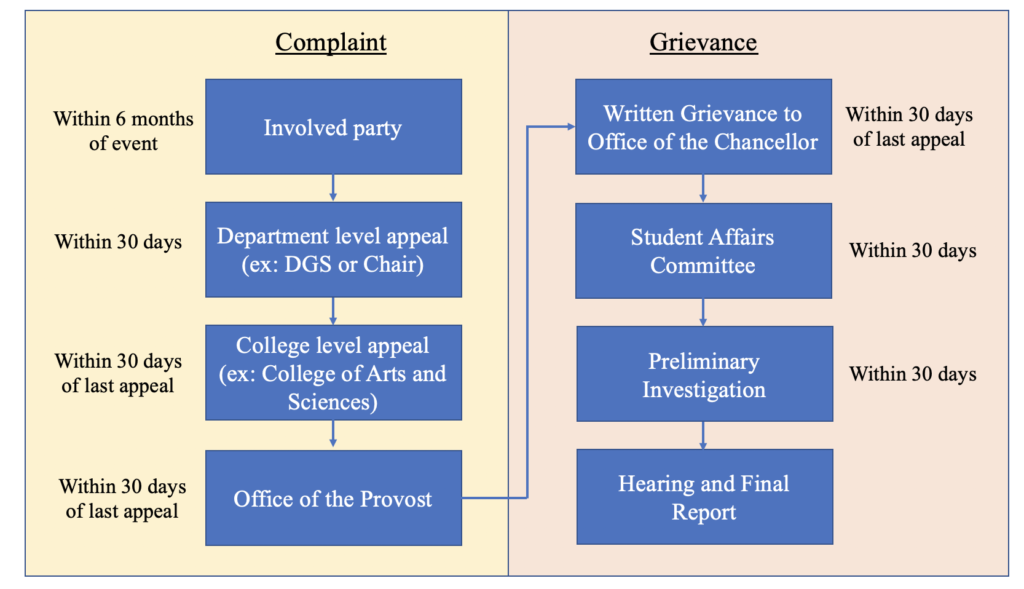Welcome to the Student Advocacy page.
See our links below to learn how we are advocating for you.
Graduate Life Coach!
![]() Stacey Satchell is the current Academic Life Coach. The Academic Life Coach assists Graduate School students and postdoctoral scholars in their academic and professional development during their time at Vanderbilt. The Graduate Life Coach works closely with the leadership of the Graduate Student Council (GSC), including the Student Life Liaison. Students may arrange a meeting with Stacey by email or through her online calendar. Students are also encouraged to view the Graduate Life Coach Confidentiality & Consent information.
Stacey Satchell is the current Academic Life Coach. The Academic Life Coach assists Graduate School students and postdoctoral scholars in their academic and professional development during their time at Vanderbilt. The Graduate Life Coach works closely with the leadership of the Graduate Student Council (GSC), including the Student Life Liaison. Students may arrange a meeting with Stacey by email or through her online calendar. Students are also encouraged to view the Graduate Life Coach Confidentiality & Consent information.
What we do:
- You bring us your concerns.
- I’ll recruit a team of students to help me investigate and learn more about the scope of the concern.
- We’ll work with you to draft a proposal containing solutions.
- We’ll contact the appropriate administrator to facilitate change.
Overview of Complaint and Grievance Process:
Note: Students should progress through the process above sequentially and advance if they believe that the previous level has not properly addressed the issue. It is recommended that students document the steps that they have taken as they go through the process.
Land Acknowledgement Statement:
“The Graduate Student Council acknowledges that Vanderbilt University occupies the ancestral hunting and traditional lands of the Cherokee, Shawnee, Choctaw, Chickasaw, and Creek peoples. Today, these people have nation boundaries in Oklahoma, North Carolina, and
Mississippi, after the Indian Removal Act of 1830 led to the forced removal of southern tribes to the west of the Mississippi River. In particular, the University resides on land ceded in the Treaty of Hopewell (1795-96). We recognize and support the Indigenous individuals and communities who live here now, and for those forcibly removed from their Homelands.
We also recognize the resistance, strength, and pride of other people of color whose ancestors worked, lived, and bled on this land without benefit or due compensation. We stand as accomplices alongside you in the fight for equity.”
Advocacy Information:
- Graduate Student Resource Guide
- Current Advocacy Efforts
- Past Advocacy Accomplishments
- Mental Health Bill of Rights and Responsibilities
- Graduate Student Health Insurance
- Unions
- Grad Student Appreciation
- Meeting Slides and Announcements
- Campus Resources
- Resolutions
Contact Us


